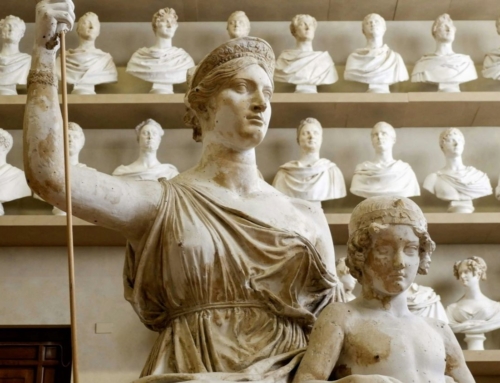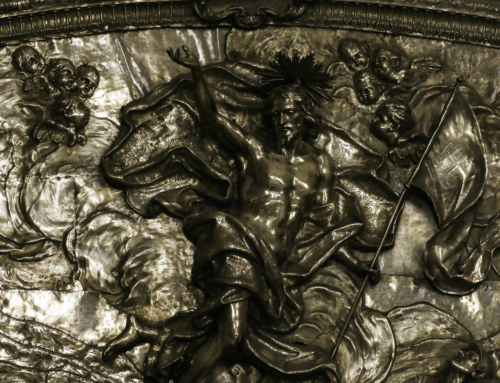The summer of my freshman year in college I took a trip with a non-denominational church to help build a school in Nicaragua. The worksite was an hour outside the city, so every morning we woke up early and piled into a tiny truck. There were never fewer than five of us in its little bed, but it was a beautiful drive—with long stretches of verdant fields, under a pure sky and brilliant sun.
One morning the cargo in the back of the truck consisted of me and four young women, all of them Evangelicals. They began to discuss the prospect of marrying a Catholic man and whether in that case they would become Catholic themselves. Somewhat surprisingly, none of them had much difficulty in deciding that she would. But then one made a stipulation: “I couldn’t do that no-contraception thing.” The others voiced their agreement with increasing distress. “I would never do that,” concluded another; “I can’t see why anyone ever would.”
“Okay,” I responded; “But maybe you would if you knew why.” I had recently read a celebrated paper by Janet Smith entitled “Contraception: Why Not?” So I promised to loan my friend a copy when we were back in the States.
A few weeks after giving her the paper, I broached the topic again and asked what she thought. That conversation didn’t last very long. To my surprise, she became angry and alleged that Smith’s arguments were beside the point. It was clear that she had no desire to consider the matter further, so I left, feeling a little foolish that I’d given her the article in the first place.
A couple years later, I heard that she was engaged to a Catholic and had entered the Church. Whether she still harbored that stipulation about contraception, I had reason to doubt. I never got to know her fiancé, but he was a theology major at an orthodox school, so I assumed that he helped to win her over. In fact, at that time I had occasion to study abroad with her in France. There, among the Roman ruins and under Gothic vaults, anyone could see that her love of the Church was beginning to bloom.
During our senior year, the eminent journalist John Allen came to our university to give a lecture about the future of the Church. Before his departure, he asked whether he could interview a few Catholic students about their faith. Somehow she and I were among those chosen. His first question was about how we had found ourselves in the Church. When Allen came to my friend, she looked in my direction and said, “It started when he gave me an essay by Janet Smith.”
I was shocked. We hadn’t spoken about that topic for years, and that last conversation hadn’t gone very well. Yet somehow her encounter with the Church’s teaching on contraception had been her first step toward becoming Catholic.
Given current ways of thinking, hers was an odd path to take. Polls continue to show that less than 5% of self-identified Catholics follow the Church’s teaching on contraception. In the wider society, it’s among the most ridiculed and/or despised features of the faith. As one commentator put it, “Consenting adults, told not to use birth control? Preposterous. Third World parents deprived access to contraception and abortion? Positively criminal. A ban on condoms when there’s a risk of contracting AIDS? Beneath contempt.”
The big problem with such dismissiveness is that it precludes people from ever really considering the question. Meanwhile, the evidence for the integrity of the Church’s teaching on sexuality has only continued to mount; the arguments have only gotten stronger. The health risks are becoming better known. The massive social costs have recently been well summarized by Mary Eberstadt in two books, drawing on decades of sociological studies and other secular sources (Adam and Eve After the Pill, and How the West Really Lost God). While addressing similar topics, Dr. Smith highlights the ethical core of the problem: the separation of the unitive and procreative meanings of human sexuality. There are eloquent, though little known, treatments of this topic inspired by Bl. John Paul II’s “Theology of the Body.”
You don’t have to be Catholic to see the problems here (in fact, sometimes it seems to help if you’re not). Still, in the current cultural climate it may take a little private investigation to perceive the damage caused by contraception. If Catholics are waiting for Diane Sawyer to inform them that contraception is detrimental to human well-being . . . well, you get the idea.
✠
Image: Brendan Abolins, Working on the Weekend







